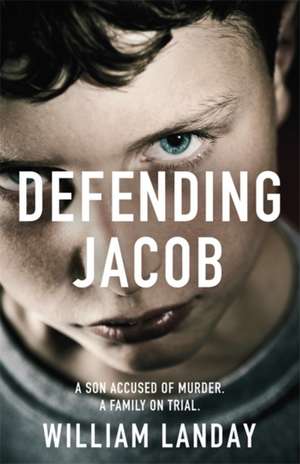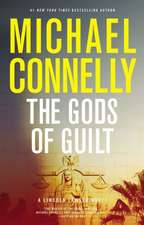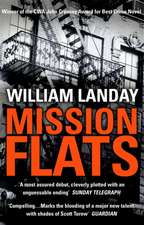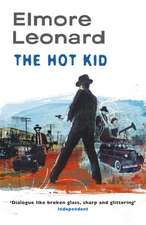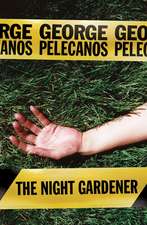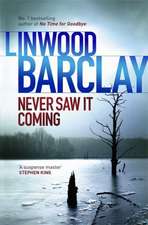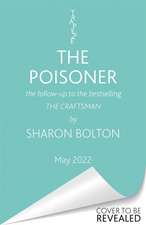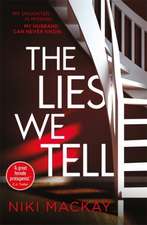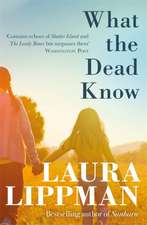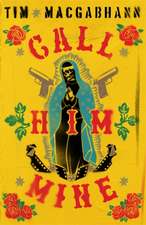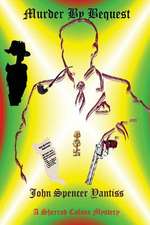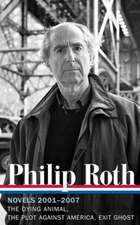Defending Jacob
Autor William Landayen Limba Engleză Paperback – 14 feb 2013
| Toate formatele și edițiile | Preț | Express |
|---|---|---|
| Paperback (2) | 55.19 lei 3-5 săpt. | +29.88 lei 4-10 zile |
| Orion Publishing Group – 14 feb 2013 | 55.19 lei 3-5 săpt. | +29.88 lei 4-10 zile |
| Bantam – 2 sep 2013 | 99.00 lei 3-5 săpt. | |
| Hardback (1) | 162.51 lei 3-5 săpt. | |
| Delacorte Press – 31 dec 2011 | 162.51 lei 3-5 săpt. |
Preț: 55.19 lei
Preț vechi: 70.98 lei
-22% Nou
Puncte Express: 83
Preț estimativ în valută:
10.56€ • 11.47$ • 8.87£
10.56€ • 11.47$ • 8.87£
Carte disponibilă
Livrare economică 01-15 aprilie
Livrare express 15-21 martie pentru 39.87 lei
Preluare comenzi: 021 569.72.76
Specificații
ISBN-13: 9781780222189
ISBN-10: 1780222181
Pagini: 512
Dimensiuni: 128 x 196 x 36 mm
Greutate: 0.34 kg
Editura: Orion Publishing Group
ISBN-10: 1780222181
Pagini: 512
Dimensiuni: 128 x 196 x 36 mm
Greutate: 0.34 kg
Editura: Orion Publishing Group
Notă biografică
William Landay is the author of The Strangler, a Los Angeles Times Favorite Crime Book of the Year, and Mission Flats, winner of the Creasey Memorial Dagger Award for Best First Crime Novel and a Barry Award nominee. A former district attorney who holds degrees from Yale and Boston College Law School, Landay lives in Boston, where he is at work on his next novel of suspense.
Extras
Chapter 1
In the Grand Jury
Mr. Logiudice: State your name, please.
Witness: Andrew Barber.
Mr. Logiudice: What do you do for work, Mr. Barber?
Witness: I was an assistant district attorney in this county for 22 years.
Mr. Logiudice: "Was." What do you do for work now?
Witness: I suppose you'd say I'm unemployed.
In April 2008, Neal Logiudice finally subpoenaed me to appear before the grand jury. By then it was too late. Too late for his case, certainly, but also too late for Logiudice. His reputation was already damaged beyond repair, and his career along with it. A prosecutor can limp along with a damaged reputation for a while, but his colleagues will watch him like wolves and eventually he will be forced out, for the good of the pack. I have seen it many times: an ADA is irreplaceable one day, forgotten the next.
I have always had a soft spot for Neal Logiudice (pronounced la-JOO-dis). He came to the DA's office a dozen years before this, right out of law school. He was twenty-nine then, short, with thinning hair and a little potbelly. His mouth was overstuffed with teeth; he had to force it shut, like a full suitcase, which left him with a sour, pucker-mouthed expression. I used to get after him not to make this face in front of juries-nobody likes a scold-but he did it unconsciously. He would get up in front of the jury box shaking his head and pursing his lips like a schoolmarm or a priest, and in every juror there stirred a secret desire to vote against him. Inside the office, Logiudice was a bit of an operator and a kiss-ass. He got a lot of teasing. Other ADAs tooled on him endlessly, but he got it from everyone, even people who worked with the office at arm's length-cops, clerks, secretaries, people who did not usually make their contempt for a prosecutor quite so obvious. They called him Milhouse, after a dweeby character on The Simpsons, and they came up with a thousand variations on his name: LoFoolish, LoDoofus, Sid Vicious, Judicious, on and on. But to me, Logiudice was okay. He was just innocent. With the best intentions, he smashed people's lives and never lost a minute of sleep over it. He only went after bad guys, after all. That is the Prosecutor's Fallacy-They are bad guys because I am prosecuting them-and Logiudice was not the first to be fooled by it, so I forgave him for being righteous. I even liked him. I rooted for him precisely because of his oddities, the unpronounceable name, the snaggled teeth-which any of his peers would have had straightened with expensive braces, paid for by Mummy and Daddy-even his naked ambition. I saw something in the guy. An air of sturdiness in the way he bore up under so much rejection, how he just took it and took it. He was obviously a working-class kid determined to get for himself what so many others had simply been handed. In that way, and only in that way, I suppose, he was just like me.
Now, a dozen years after he arrived in the office, despite all his quirks, he had made it, or nearly made it. Neal Logiudice was First Assistant, the number two man in the Middlesex District Attorney's Office, the DA's right hand and chief trial attorney. He took over the job from me-this kid who once said to me, "Andy, you're exactly what I want to be someday." I should have seen it coming. In the grand jury room that morning, the jurors were in a sullen, defeated mood. They sat, thirty-odd men and women who had not been clever enough to find a way out of serving, all crammed into those school chairs with teardrop-shaped desks for chair arms. They understood their jobs well enough by now. Grand juries serve for months, and they figure out pretty quickly what the gig is all about: accuse, point your finger, name the wicked one.
A grand jury proceeding is not a trial. There is no judge in the room and no defense lawyer. The prosecutor runs the show. It is an investigation and in theory a check on the prosecutor's power, since the grand jury decides whether the prosecutor has enough evidence to haul a suspect into court for trial. If there is enough evidence, the grand jury grants the prosecutor an indictment, his ticket to Superior Court. If not, they return a "no bill" and the case is over before it begins. In practice, no bills are rare. Most grand juries indict. Why not? They only see one side of the case.
But in this case, I suspect the jurors knew Logiudice did not have a case. Not today. The truth was not going to be found, not with evidence this stale and tainted, not after everything that had happened. It had been over a year already-over twelve months since the body of a fourteen-year-old boy was found in the woods with three stab wounds arranged in a line across the chest as if he'd been forked with a trident. But it was not the time, so much. It was everything else. Too late, and the grand jury knew it.
I knew it too.
Only Logiudice was undeterred. He pursed his lips in that odd way of his. He reviewed his notes on a yellow legal pad, considered his next question. He was doing just what I'd taught him. The voice in his head was mine: Never mind how weak your case is. Stick to the system. Play the game the same way it's been played the last five-hundred-odd years, use the same gutter tactic that has always governed cross-examination-lure, trap, fuck.
He said, "Do you recall when you first heard about the Rifkin boy's murder?"
"Yes."
"Describe it."
"I got a call, I think, first from CPAC-that's thes tate police. Then two more came in right away, one from the Newton police, one from the duty DA. I may have the order wrong, but basically the phone started ringing off the hook."
"When was this?"
"Thursday, April 12, 2007, around nine A.M., right after the body was discovered."
"Why were you called?"
"I was the First Assistant. I was notified of every murder in the county. It was standard procedure."
"But you did not keep every case, did you? You did not personally investigate and try every homicide that came in?"
"No, of course not. I didn't have that kind of time. I kept very few homicides. Most I assigned to other ADAs."
"But this one you kept."
"Yes."
"Did you decide immediately that you were going to keep it for yourself, or did you only decide that later?"
"I decided almost immediately."
"Why? Why did you want this case in particular?"
"I had an understanding with the district attorney, Lynn Canavan: certain cases I would try personally."
"What sort of cases?"
"High-priority cases."
"Why you?"
"I was the senior trial lawyer in the office. She wanted to be sure that important cases were handled properly."
"Who decided if a case was high priority?"
"Me, in the first instance. In consultation with the district attorney, of course, but things tend to move pretty fast at the beginning. There isn't usually time for a meeting."
"So you decided the Rifkin murder was a high-priority case?"
"Of course."
"Why?"
"Because it involved the murder of a child. I think we also had an idea it might blow up, catch the media's attention. It was that kind of case. It happened in a wealthy town, with a wealthy victim. We'd already had a few cases like that. At the beginning we did not know exactly what it was, either. In some ways it looked like a schoolhouse killing, a Columbine thing. Basically, we didn't know what the hell it was, but it smelled like a big case. If it had turned out to be a smaller thing, I would have passed it off later, but in those first few hours I had to be sure everything was done right."
"Did you inform the district attorney that you had a conflict of interest?"
"No."
"Why not?"
"Because I didn't have one."
"Wasn't your son, Jacob, a classmate of the dead boy?"
"Yes, but I didn't know the victim. Jacob didn't know him either, as far as I was aware. I'd never even heard the dead boy's name."
"You did not know the kid. All right. But you did know that he and your son were in the same grade at the same middle school in the same town?"
"Yes."
"And you still didn't think you were conflicted out? You didn't think your objectivity might be called into question?"
"No. Of course not."
"Even in hindsight? You insist, you- Even in hindsight, you still don't feel the circumstances gave even the appearance of a conflict?"
"No, there was nothing improper about it. There was nothing even unusual about it. The fact that I lived in the town where the murder happened? That was a good thing. In smaller counties, the prosecutor often lives in the community where a crime happens, he often knows the people affected by it. So what? So he wants to catch the murderer even more? That's not a conflict of interest. Look, the bottom line is, I have a conflict with all murderers. That's my job. This was a horrible, horrible crime; it was my job to do something about it. I was determined to do just that."
"Okay." Logiudice lowered his eyes to his pad. No sense attacking the witness so early in his testimony. He would come back to this point later in the day, no doubt, when I was tired. For now, best to keep the temperature down.
"You understand your Fifth Amendment rights?"
"Of course."
"And you have waived them?"
"Apparently. I'm here. I'm talking."
Titters from the grand jury.
Logiudice laid down his pad, and with it he seemed to set aside his game plan for a moment. "Mr. Barber-Andy-could I just ask you something: why not invoke them? Why not remain silent?" The next sentence he left unsaid: That's what I would do.
I thought for a moment that this was a tactic, a bit of play acting. But Logiudice seemed to mean it. He was worried I was up to something. He did not want to be tricked, to look like a fool.
I said, "I have no desire to remain silent. I want the truth to come out."
"No matter what?"
"I believe in the system, same as you, same as everyone here."
Now, this was not exactly true. I do not believe in the court system, at least I do not think it is especially good at finding the truth. No lawyer does. We have all seen too many mistakes, too many bad results. A jury verdict is just a guess-a well-intentioned guess, generally, but you simply cannot tell fact from fiction by taking a vote. And yet, despite all that, I do believe in the power of the ritual. I believe in the religious symbolism, the black robes, the marble-columned courthouses like Greek temples. When we hold a trial, we are saying a mass. We are praying together to do what is right and to be protected from danger, and that is worth doing whether or not our prayers are actually heard.
Of course, Logiudice did not go in for that sort of solemn bullshit. He lived in the lawyer's binary world, guilty or not guilty, and he was determined to keep me pinned there.
"You believe in the system, do you?" he sniffed. "All right, Andy, let's get back to it, then. We'll let the system do its work." He gave the jury a knowing, smart-ass look.
Attaboy, Neal. Don't let the witness jump into bed with the jury-you jump into bed with the jury. Jump in there and snuggle right up beside them under the blanket and leave the witness out in the cold. I smirked. I would have stood up and applauded if I'd been allowed to, because I taught him to do precisely this. Why deny myself a little fatherly pride? I must not have been all bad-I turned Neal Logiudice into a half-decent lawyer, after all.
"So go on already," I said, nuzzling the jury's neck. "Stop screwing around and get on with it, Neal."
He gave me a look, then picked up his yellow pad again and scanned it, looking for his place. I could practically read the thought spelled out across his forehead: Lure, trap, fuck. "Okay," he said, "let's pick it up at the aftermath of the murder."
2 |
Our Crowd
April 2007: twelve months earlier.
When the Rifkins opened their home for the shiva, the Jewish period of mourning, it seemed the whole town came. The family would not be allowed to mourn in private. The boy's murder was a public event; the grieving would be as well. The house was so full that when the murmur of conversation occasionally swelled, the whole thing began to feel awkwardly like a party, until the crowd lowered its voice as one, as if an invisible volume knob were being turned.
I made apologetic faces as I moved through this crowd, repeating "Excuse me," turning this way and that to shuffle by.
People stared with curious expressions. Someone said, "That's him, that's Andy Barber," but I did not stop. We were four days past the murder now, and everyone knew I was handling the case. They wanted to ask about it, naturally, about suspects and clues and all that, but they did not dare. For the moment, the details of the investigation did not matter, only the raw fact that an innocent kid was dead.
Murdered! The news sucker-punched them. Newton had no crime to speak of. What the locals knew about violence necessarily came from news reports and TV shows. They had supposed that violent crime was limited to the city, to an underclass of urban hillbillies. They were wrong about that, of course, but they were not fools and they would not have been so shocked by the murder of an adult. What made the Rifkin murder so profane was that it involved one of the town's children. It was a violation of Newton's self-image. For awhile a sign had stood in Newton Centre declaring the place "A Community of Families, A Family of Communities," and you often heard it repeated that Newton was "a good place to raise kids." Which indeed it was. It brimmed with test-prep centers and after-school tutors, karate dojos and Saturday soccer leagues. The town's young parents especially prized this idea of Newton as a child's paradise. Many of them had left the hip, sophisticated city to move here. They had accepted massive expenses, stultifying monotony, and the queasy disappointment of settling for a conventional life. To these ambivalent residents, the whole suburban project made sense only because it was "a good place to raise kids." They had staked everything on it.
In the Grand Jury
Mr. Logiudice: State your name, please.
Witness: Andrew Barber.
Mr. Logiudice: What do you do for work, Mr. Barber?
Witness: I was an assistant district attorney in this county for 22 years.
Mr. Logiudice: "Was." What do you do for work now?
Witness: I suppose you'd say I'm unemployed.
In April 2008, Neal Logiudice finally subpoenaed me to appear before the grand jury. By then it was too late. Too late for his case, certainly, but also too late for Logiudice. His reputation was already damaged beyond repair, and his career along with it. A prosecutor can limp along with a damaged reputation for a while, but his colleagues will watch him like wolves and eventually he will be forced out, for the good of the pack. I have seen it many times: an ADA is irreplaceable one day, forgotten the next.
I have always had a soft spot for Neal Logiudice (pronounced la-JOO-dis). He came to the DA's office a dozen years before this, right out of law school. He was twenty-nine then, short, with thinning hair and a little potbelly. His mouth was overstuffed with teeth; he had to force it shut, like a full suitcase, which left him with a sour, pucker-mouthed expression. I used to get after him not to make this face in front of juries-nobody likes a scold-but he did it unconsciously. He would get up in front of the jury box shaking his head and pursing his lips like a schoolmarm or a priest, and in every juror there stirred a secret desire to vote against him. Inside the office, Logiudice was a bit of an operator and a kiss-ass. He got a lot of teasing. Other ADAs tooled on him endlessly, but he got it from everyone, even people who worked with the office at arm's length-cops, clerks, secretaries, people who did not usually make their contempt for a prosecutor quite so obvious. They called him Milhouse, after a dweeby character on The Simpsons, and they came up with a thousand variations on his name: LoFoolish, LoDoofus, Sid Vicious, Judicious, on and on. But to me, Logiudice was okay. He was just innocent. With the best intentions, he smashed people's lives and never lost a minute of sleep over it. He only went after bad guys, after all. That is the Prosecutor's Fallacy-They are bad guys because I am prosecuting them-and Logiudice was not the first to be fooled by it, so I forgave him for being righteous. I even liked him. I rooted for him precisely because of his oddities, the unpronounceable name, the snaggled teeth-which any of his peers would have had straightened with expensive braces, paid for by Mummy and Daddy-even his naked ambition. I saw something in the guy. An air of sturdiness in the way he bore up under so much rejection, how he just took it and took it. He was obviously a working-class kid determined to get for himself what so many others had simply been handed. In that way, and only in that way, I suppose, he was just like me.
Now, a dozen years after he arrived in the office, despite all his quirks, he had made it, or nearly made it. Neal Logiudice was First Assistant, the number two man in the Middlesex District Attorney's Office, the DA's right hand and chief trial attorney. He took over the job from me-this kid who once said to me, "Andy, you're exactly what I want to be someday." I should have seen it coming. In the grand jury room that morning, the jurors were in a sullen, defeated mood. They sat, thirty-odd men and women who had not been clever enough to find a way out of serving, all crammed into those school chairs with teardrop-shaped desks for chair arms. They understood their jobs well enough by now. Grand juries serve for months, and they figure out pretty quickly what the gig is all about: accuse, point your finger, name the wicked one.
A grand jury proceeding is not a trial. There is no judge in the room and no defense lawyer. The prosecutor runs the show. It is an investigation and in theory a check on the prosecutor's power, since the grand jury decides whether the prosecutor has enough evidence to haul a suspect into court for trial. If there is enough evidence, the grand jury grants the prosecutor an indictment, his ticket to Superior Court. If not, they return a "no bill" and the case is over before it begins. In practice, no bills are rare. Most grand juries indict. Why not? They only see one side of the case.
But in this case, I suspect the jurors knew Logiudice did not have a case. Not today. The truth was not going to be found, not with evidence this stale and tainted, not after everything that had happened. It had been over a year already-over twelve months since the body of a fourteen-year-old boy was found in the woods with three stab wounds arranged in a line across the chest as if he'd been forked with a trident. But it was not the time, so much. It was everything else. Too late, and the grand jury knew it.
I knew it too.
Only Logiudice was undeterred. He pursed his lips in that odd way of his. He reviewed his notes on a yellow legal pad, considered his next question. He was doing just what I'd taught him. The voice in his head was mine: Never mind how weak your case is. Stick to the system. Play the game the same way it's been played the last five-hundred-odd years, use the same gutter tactic that has always governed cross-examination-lure, trap, fuck.
He said, "Do you recall when you first heard about the Rifkin boy's murder?"
"Yes."
"Describe it."
"I got a call, I think, first from CPAC-that's thes tate police. Then two more came in right away, one from the Newton police, one from the duty DA. I may have the order wrong, but basically the phone started ringing off the hook."
"When was this?"
"Thursday, April 12, 2007, around nine A.M., right after the body was discovered."
"Why were you called?"
"I was the First Assistant. I was notified of every murder in the county. It was standard procedure."
"But you did not keep every case, did you? You did not personally investigate and try every homicide that came in?"
"No, of course not. I didn't have that kind of time. I kept very few homicides. Most I assigned to other ADAs."
"But this one you kept."
"Yes."
"Did you decide immediately that you were going to keep it for yourself, or did you only decide that later?"
"I decided almost immediately."
"Why? Why did you want this case in particular?"
"I had an understanding with the district attorney, Lynn Canavan: certain cases I would try personally."
"What sort of cases?"
"High-priority cases."
"Why you?"
"I was the senior trial lawyer in the office. She wanted to be sure that important cases were handled properly."
"Who decided if a case was high priority?"
"Me, in the first instance. In consultation with the district attorney, of course, but things tend to move pretty fast at the beginning. There isn't usually time for a meeting."
"So you decided the Rifkin murder was a high-priority case?"
"Of course."
"Why?"
"Because it involved the murder of a child. I think we also had an idea it might blow up, catch the media's attention. It was that kind of case. It happened in a wealthy town, with a wealthy victim. We'd already had a few cases like that. At the beginning we did not know exactly what it was, either. In some ways it looked like a schoolhouse killing, a Columbine thing. Basically, we didn't know what the hell it was, but it smelled like a big case. If it had turned out to be a smaller thing, I would have passed it off later, but in those first few hours I had to be sure everything was done right."
"Did you inform the district attorney that you had a conflict of interest?"
"No."
"Why not?"
"Because I didn't have one."
"Wasn't your son, Jacob, a classmate of the dead boy?"
"Yes, but I didn't know the victim. Jacob didn't know him either, as far as I was aware. I'd never even heard the dead boy's name."
"You did not know the kid. All right. But you did know that he and your son were in the same grade at the same middle school in the same town?"
"Yes."
"And you still didn't think you were conflicted out? You didn't think your objectivity might be called into question?"
"No. Of course not."
"Even in hindsight? You insist, you- Even in hindsight, you still don't feel the circumstances gave even the appearance of a conflict?"
"No, there was nothing improper about it. There was nothing even unusual about it. The fact that I lived in the town where the murder happened? That was a good thing. In smaller counties, the prosecutor often lives in the community where a crime happens, he often knows the people affected by it. So what? So he wants to catch the murderer even more? That's not a conflict of interest. Look, the bottom line is, I have a conflict with all murderers. That's my job. This was a horrible, horrible crime; it was my job to do something about it. I was determined to do just that."
"Okay." Logiudice lowered his eyes to his pad. No sense attacking the witness so early in his testimony. He would come back to this point later in the day, no doubt, when I was tired. For now, best to keep the temperature down.
"You understand your Fifth Amendment rights?"
"Of course."
"And you have waived them?"
"Apparently. I'm here. I'm talking."
Titters from the grand jury.
Logiudice laid down his pad, and with it he seemed to set aside his game plan for a moment. "Mr. Barber-Andy-could I just ask you something: why not invoke them? Why not remain silent?" The next sentence he left unsaid: That's what I would do.
I thought for a moment that this was a tactic, a bit of play acting. But Logiudice seemed to mean it. He was worried I was up to something. He did not want to be tricked, to look like a fool.
I said, "I have no desire to remain silent. I want the truth to come out."
"No matter what?"
"I believe in the system, same as you, same as everyone here."
Now, this was not exactly true. I do not believe in the court system, at least I do not think it is especially good at finding the truth. No lawyer does. We have all seen too many mistakes, too many bad results. A jury verdict is just a guess-a well-intentioned guess, generally, but you simply cannot tell fact from fiction by taking a vote. And yet, despite all that, I do believe in the power of the ritual. I believe in the religious symbolism, the black robes, the marble-columned courthouses like Greek temples. When we hold a trial, we are saying a mass. We are praying together to do what is right and to be protected from danger, and that is worth doing whether or not our prayers are actually heard.
Of course, Logiudice did not go in for that sort of solemn bullshit. He lived in the lawyer's binary world, guilty or not guilty, and he was determined to keep me pinned there.
"You believe in the system, do you?" he sniffed. "All right, Andy, let's get back to it, then. We'll let the system do its work." He gave the jury a knowing, smart-ass look.
Attaboy, Neal. Don't let the witness jump into bed with the jury-you jump into bed with the jury. Jump in there and snuggle right up beside them under the blanket and leave the witness out in the cold. I smirked. I would have stood up and applauded if I'd been allowed to, because I taught him to do precisely this. Why deny myself a little fatherly pride? I must not have been all bad-I turned Neal Logiudice into a half-decent lawyer, after all.
"So go on already," I said, nuzzling the jury's neck. "Stop screwing around and get on with it, Neal."
He gave me a look, then picked up his yellow pad again and scanned it, looking for his place. I could practically read the thought spelled out across his forehead: Lure, trap, fuck. "Okay," he said, "let's pick it up at the aftermath of the murder."
2 |
Our Crowd
April 2007: twelve months earlier.
When the Rifkins opened their home for the shiva, the Jewish period of mourning, it seemed the whole town came. The family would not be allowed to mourn in private. The boy's murder was a public event; the grieving would be as well. The house was so full that when the murmur of conversation occasionally swelled, the whole thing began to feel awkwardly like a party, until the crowd lowered its voice as one, as if an invisible volume knob were being turned.
I made apologetic faces as I moved through this crowd, repeating "Excuse me," turning this way and that to shuffle by.
People stared with curious expressions. Someone said, "That's him, that's Andy Barber," but I did not stop. We were four days past the murder now, and everyone knew I was handling the case. They wanted to ask about it, naturally, about suspects and clues and all that, but they did not dare. For the moment, the details of the investigation did not matter, only the raw fact that an innocent kid was dead.
Murdered! The news sucker-punched them. Newton had no crime to speak of. What the locals knew about violence necessarily came from news reports and TV shows. They had supposed that violent crime was limited to the city, to an underclass of urban hillbillies. They were wrong about that, of course, but they were not fools and they would not have been so shocked by the murder of an adult. What made the Rifkin murder so profane was that it involved one of the town's children. It was a violation of Newton's self-image. For awhile a sign had stood in Newton Centre declaring the place "A Community of Families, A Family of Communities," and you often heard it repeated that Newton was "a good place to raise kids." Which indeed it was. It brimmed with test-prep centers and after-school tutors, karate dojos and Saturday soccer leagues. The town's young parents especially prized this idea of Newton as a child's paradise. Many of them had left the hip, sophisticated city to move here. They had accepted massive expenses, stultifying monotony, and the queasy disappointment of settling for a conventional life. To these ambivalent residents, the whole suburban project made sense only because it was "a good place to raise kids." They had staked everything on it.
Recenzii
Praise for Defending Jacob
“William Landay makes bold use of his genuine storytelling gift, his amazing ability to craft believable dialogue, and, above all, his extraordinary understanding of what it means to be a husband and father to present us with an unforgettable tale of an ordinary marriage and family in crisis. On the surface this novel reads like a first-rate thriller, but at its heart it’s a love story. It’s the story of a man who adores his wife and child, but more than that, it’s a novel that describes the fine edge between love and madness, and the lies we sometimes tell ourselves. Landay has proven himself to be an extraordinary writer, and Defending Jacob is an amazing novel. Do yourself a favor and read it. It’s that good.”—Nicholas Sparks
“Defending Jacob is smart, sophisticated, and suspenseful—capturing both the complexity and stunning fragility of family life.”—Lee Child
“Powerful . . . leaves you gasping breathlessly at each shocking revelation.”—Lisa Gardner
“A page-turning, stomach-clenching exploration of family.”—Chevy Stevens
“A stunning novel that will be compared to classic courtroom thrillers like Presumed Innocent and Anatomy of a Murder.”—Phillip Margolin
“So well-written, every character so movingly and convincingly drawn, the plot so utterly enthralling . . . Defending Jacob is absolutely stellar, first-rate fiction—human, sensitive, and gripping in the extreme.”—Lisa Unger
“More than a terrific legal thrill ride, Defending Jacob is an unflinching appraisal of the darkest, most poignant consequences of the love that binds, and blinds, families. It’s one of those rare books that call for contemplation and insight along with every breathtaking surprise.”—Stephen White
“Landay spins a tale of such complexity and emotion that you don’t even realize you’re spiraling deep into his world until he spits you out at his shocking, shattering conclusion.”—Carla Buckley
“Sensational . . . one of the best books of the year.”—John Lutz
“A novel like this comes along maybe once a decade . . . a tour de force, a full-blooded legal thriller about a murder trial and the way it shatters a family. With its relentless suspense, its mesmerizing prose, and a shocking twist at the end, it’s every bit as good as Scott Turow’s great Presumed Innocent. But it’s also something more: an indelible domestic drama that calls to mind Ordinary People and We Need to Talk About Kevin. A spellbinding and unforgettable literary crime novel.”—Joseph Finder
“Powerful, disturbing, complex, and gripping, Defending Jacob is impossible to put down. William Landay is a stunning talent.”—Carla Neggers
“Riveting, suspenseful, and emotionally searing.”—Linwood Barclay
“Brilliantly conceived . . . combines a harrowing family drama with riveting courtroom scenes that make readers feel they are actually witnessing the trial unfold.”—Stephen Frey
“A carefully plotted and precisely written thriller about a family put to the ultimate test . . . Defending Jacob is bound to enthrall.”—Thomas H. Cook
“Harrowing . . . This searing narrative proves the ancient Greek tragedians were right: the worst punishment is not death but living with what you—knowingly or unknowingly—have done.”—Publishers Weekly (starred review)
“[Landay] reaches a new level of excellence with this riveting, knock-your-socks-off legal thriller. With its masterfully crafted characterizations and dialogue, emotional depth, and frightening implications, the novel rivals the best of Scott Turow and John Grisham. Don’t miss it.” —Booklist (starred review)
“Gripping, emotional murder saga….The shocking ending will have readers pulling up their bedcovers to ward off the haunting chill.” —People Magazine (three of four stars)
“Landay has written a legal thriller that’s comparable to classics such as Scott Turow’s Presumed Innocent….Tragic and shocking, Defending Jacob is sure to generate buzz.” —Associated Press
“Do you like a mystery with a good twist at the end? How about one with the literary equivalent of skating’s triple axel?....Hang on for that shocking and yet believable ending—with a triple twist you won’t see coming.” —Portland Oregonian
“Like John Grisham and Scott Turow, Landay is a lawyer with a solid grasp of how to use courtroom scenes to advance his jigsaw-puzzle story….with a grabby premise and careful plotting, he keeps you turning the pages through the shocking gut-punch of an ending.” —Entertainment Weekly
“[Landay] reaches a new level of excellence with this riveting, knock-your-socks-off legal thriller. With its masterfully crafted characterizations and dialogue, emotional depth, and frightening implications, the novel rivals the best of Scott Turow and John Grisham. Don’t miss it.” —Booklist (starred review)
“Not since the novels of Scott Turow has a crime thriller—and thriller, though this too happens to be a literary legal thriller—shaken me by the throat like this. It’s a stunning, shocking, emotionally harrowing ride in which the reader is plunged into a riveting but terrible murder trial and the heartbreaking implosion of a loving family.” —Daily Mail
“Even with unexpected twists and turns, the two narratives interlock like the teeth of a zipper, building to a tough and unflinching finale. This novel has major motion picture written all over it.” —The Boston Globe
“Landay turns out to be creating a clever blend of legal thriller and issue-oriented family implosion…nothing is predictable. All bets are off.” —Janet Maslin, The New York Times
“Defending Jacob is a novel that comes to you out of the blue and manages to keep you reading feverishly until the whole thing is completed….Landay has written a stunning novel and it is one that should draw attention to the possibilities it raises. In the next few weeks, Defending Jacob is the novel most readers are going to be discussing.” —Huffington Post
“The hype is justified…exceptionally serious, suspenseful, engrossing.” —The Washington Post
“William Landay makes bold use of his genuine storytelling gift, his amazing ability to craft believable dialogue, and, above all, his extraordinary understanding of what it means to be a husband and father to present us with an unforgettable tale of an ordinary marriage and family in crisis. On the surface this novel reads like a first-rate thriller, but at its heart it’s a love story. It’s the story of a man who adores his wife and child, but more than that, it’s a novel that describes the fine edge between love and madness, and the lies we sometimes tell ourselves. Landay has proven himself to be an extraordinary writer, and Defending Jacob is an amazing novel. Do yourself a favor and read it. It’s that good.”—Nicholas Sparks
“Defending Jacob is smart, sophisticated, and suspenseful—capturing both the complexity and stunning fragility of family life.”—Lee Child
“Powerful . . . leaves you gasping breathlessly at each shocking revelation.”—Lisa Gardner
“A page-turning, stomach-clenching exploration of family.”—Chevy Stevens
“A stunning novel that will be compared to classic courtroom thrillers like Presumed Innocent and Anatomy of a Murder.”—Phillip Margolin
“So well-written, every character so movingly and convincingly drawn, the plot so utterly enthralling . . . Defending Jacob is absolutely stellar, first-rate fiction—human, sensitive, and gripping in the extreme.”—Lisa Unger
“More than a terrific legal thrill ride, Defending Jacob is an unflinching appraisal of the darkest, most poignant consequences of the love that binds, and blinds, families. It’s one of those rare books that call for contemplation and insight along with every breathtaking surprise.”—Stephen White
“Landay spins a tale of such complexity and emotion that you don’t even realize you’re spiraling deep into his world until he spits you out at his shocking, shattering conclusion.”—Carla Buckley
“Sensational . . . one of the best books of the year.”—John Lutz
“A novel like this comes along maybe once a decade . . . a tour de force, a full-blooded legal thriller about a murder trial and the way it shatters a family. With its relentless suspense, its mesmerizing prose, and a shocking twist at the end, it’s every bit as good as Scott Turow’s great Presumed Innocent. But it’s also something more: an indelible domestic drama that calls to mind Ordinary People and We Need to Talk About Kevin. A spellbinding and unforgettable literary crime novel.”—Joseph Finder
“Powerful, disturbing, complex, and gripping, Defending Jacob is impossible to put down. William Landay is a stunning talent.”—Carla Neggers
“Riveting, suspenseful, and emotionally searing.”—Linwood Barclay
“Brilliantly conceived . . . combines a harrowing family drama with riveting courtroom scenes that make readers feel they are actually witnessing the trial unfold.”—Stephen Frey
“A carefully plotted and precisely written thriller about a family put to the ultimate test . . . Defending Jacob is bound to enthrall.”—Thomas H. Cook
“Harrowing . . . This searing narrative proves the ancient Greek tragedians were right: the worst punishment is not death but living with what you—knowingly or unknowingly—have done.”—Publishers Weekly (starred review)
“[Landay] reaches a new level of excellence with this riveting, knock-your-socks-off legal thriller. With its masterfully crafted characterizations and dialogue, emotional depth, and frightening implications, the novel rivals the best of Scott Turow and John Grisham. Don’t miss it.” —Booklist (starred review)
“Gripping, emotional murder saga….The shocking ending will have readers pulling up their bedcovers to ward off the haunting chill.” —People Magazine (three of four stars)
“Landay has written a legal thriller that’s comparable to classics such as Scott Turow’s Presumed Innocent….Tragic and shocking, Defending Jacob is sure to generate buzz.” —Associated Press
“Do you like a mystery with a good twist at the end? How about one with the literary equivalent of skating’s triple axel?....Hang on for that shocking and yet believable ending—with a triple twist you won’t see coming.” —Portland Oregonian
“Like John Grisham and Scott Turow, Landay is a lawyer with a solid grasp of how to use courtroom scenes to advance his jigsaw-puzzle story….with a grabby premise and careful plotting, he keeps you turning the pages through the shocking gut-punch of an ending.” —Entertainment Weekly
“[Landay] reaches a new level of excellence with this riveting, knock-your-socks-off legal thriller. With its masterfully crafted characterizations and dialogue, emotional depth, and frightening implications, the novel rivals the best of Scott Turow and John Grisham. Don’t miss it.” —Booklist (starred review)
“Not since the novels of Scott Turow has a crime thriller—and thriller, though this too happens to be a literary legal thriller—shaken me by the throat like this. It’s a stunning, shocking, emotionally harrowing ride in which the reader is plunged into a riveting but terrible murder trial and the heartbreaking implosion of a loving family.” —Daily Mail
“Even with unexpected twists and turns, the two narratives interlock like the teeth of a zipper, building to a tough and unflinching finale. This novel has major motion picture written all over it.” —The Boston Globe
“Landay turns out to be creating a clever blend of legal thriller and issue-oriented family implosion…nothing is predictable. All bets are off.” —Janet Maslin, The New York Times
“Defending Jacob is a novel that comes to you out of the blue and manages to keep you reading feverishly until the whole thing is completed….Landay has written a stunning novel and it is one that should draw attention to the possibilities it raises. In the next few weeks, Defending Jacob is the novel most readers are going to be discussing.” —Huffington Post
“The hype is justified…exceptionally serious, suspenseful, engrossing.” —The Washington Post
